The Central Bank of Nigeria (CBN) has introduced new guidelines aimed at regulating the operations of Bureau De Change (BDC) operators in the country. These regulations, outlined in a document titled “Revised Regulatory and Supervisory Guidelines for Bureau De Change Operations in Nigeria,” were officially disclosed on February 23, 2024. The issuance of these guidelines reflects the CBN’s ongoing efforts to streamline and enhance the foreign exchange market’s operations while ensuring compliance with regulatory standards.
One of the key provisions of the revised guidelines is the imposition of limits on the amount of foreign currency that BDCs can sell to individuals for various purposes. For personal travel allowance (PTA), BDCs are permitted to sell up to $4,000, while for business travel allowance (BTA), the limit is set at $5,000. These limits apply to each individual once every six months, emphasizing the CBN’s intention to monitor and regulate foreign exchange transactions to maintain stability in the market.
To facilitate compliance and ensure transparency, the CBN has specified documentation requirements for individuals seeking to purchase foreign currency from BDCs. These requirements include providing the customer’s Bank Verification Number (BVN) or Tax Identification Number (TIN), along with other essential documents such as a valid international passport, visa, and valid international return ticket. Additionally, customers requesting BTA must furnish a letter of request from the corporate body, along with certificates of business registration or incorporation.
The guidelines also address specific scenarios where individuals may require foreign currency for medical bills or school fees. BDCs are authorized to sell up to $5,000 for medical bills and up to $10,000 for school fees once a year. However, these transactions must be supported by appropriate documentation, such as medical reports for medical bills or evidence of admission/course program for school fees. Furthermore, payments for medical bills and school fees are required to be transferred directly to the hospital or school from the BDC’s domiciliary account with a Nigerian bank, adding an additional layer of accountability and oversight.

In terms of payment modalities, the guidelines stipulate that a beneficiary of foreign currency sale may receive up to 25 percent of the foreign currency in cash, while the remaining 75 percent shall be transferred electronically to the customer’s Nigerian domiciliary account or prepaid travel card. This provision aims to strike a balance between the convenience of cash transactions and the security and traceability of electronic transfers.
Moreover, the CBN’s revised guidelines encompass broader enhancements to the regulatory framework governing BDC operations. These enhancements include stringent licensing requirements, corporate governance standards, and Anti-Money Laundering/Combating the Financing of Terrorism (AML/CFT) provisions. Additionally, the guidelines introduce new record-keeping and reporting requirements to improve transparency and regulatory oversight.
In summary, the CBN’s issuance of revised regulatory and supervisory guidelines for BDC operations represents a significant step towards fostering transparency, compliance, and efficiency in Nigeria’s foreign exchange market. By imposing limits on foreign exchange sales, specifying documentation requirements, and enhancing regulatory standards, the CBN seeks to promote stability and integrity in the market while ensuring that foreign exchange resources are allocated efficiently and judiciously.
